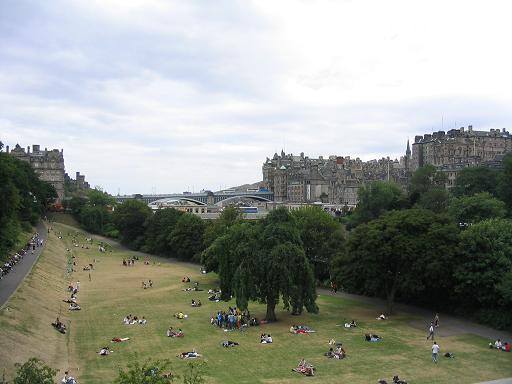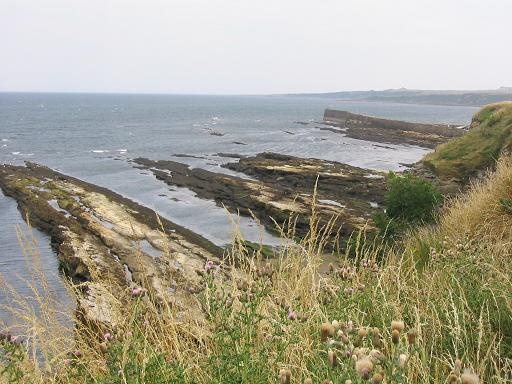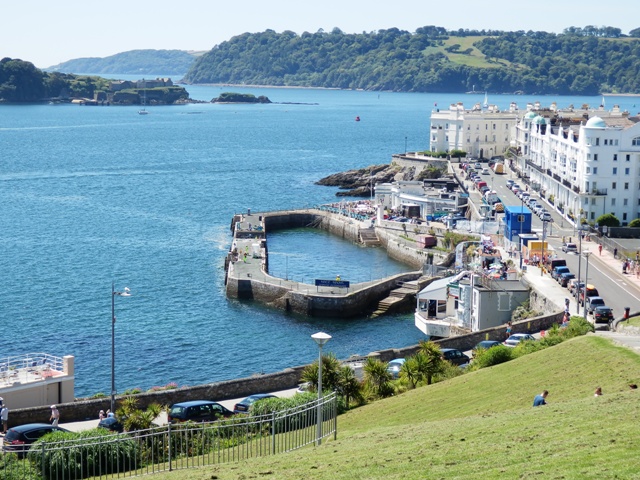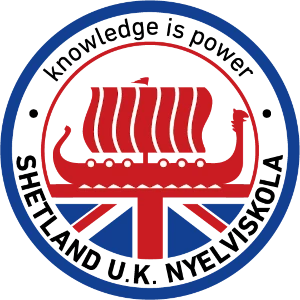[vc_row][vc_column][vc_column_text]
London 2019, István, Erasmus+ traveller
I spent three weeks studying English in London at Kings Education in Beckenham, in the south-east of the city. Thanks to Shetland Language School, everything went very smoothly and the pre-arrangement was very thorough and helpful. The three weeks were full of challenges and exciting discoveries. I was able to develop in a mother tongue environment with teachers and a welcoming family. At the language school, I took a general language course in the morning and in the afternoon I studied Business English in the optional group. Several excursions to the city were organised, for example to Greenwich. This year, the three weeks were not just about learning, but also about holidays, with the possibility of a weekend trip to Cambridge and Oxford, organised by the language school outside. For me it was a great experience.
Plymouth 2019, Ramóna, Erasmus+ traveller
My three-week course in English was preceded by a long preparation. My aim was to improve my English language skills in a native environment, by dealing with everyday situations and through a well-organised language course. I received a lot of help from the Shetland U.K. Language School in Budapest, I trusted them completely and was happy to receive all their advice. After choosing the date, I was able to rely on them for almost everything, from buying the flight, booking the accommodation, contacting the language school, etc. The conditions of the trip and the stay were entirely adapted to me: I had to complete a level assessment form in advance to be placed in the most appropriate level group at the language school; I had to fill in a form about my host family and I feel that this trip could not have been better. I have had wonderful experiences, met great people and my language skills have almost imperceptibly become more confident than I ever hoped.
Plymouth 2019, Éva, solo traveller
Everything from the organisation of the trip to the teaching in the school was very good. Perfect.
I had a good time, the host family was very good, the group was good, the level of knowledge in the group was good, the teachers were very good and the school office staff were very helpful with anything.
All in all, I came home with a very positive experience.
Edinburgh 2008, András, solo traveller

I recently took an English course at Shetland Language School in Edinburgh. I had a very memorable two weeks there.
Edinburgh is a beautiful city with many attractions. My favourite is the medieval castle in the centre of the city, which is still in excellent condition. This trip was a great experience and language learning experience for me, as I got to meet so many students of different nationalities:
with Italians, Poles, Russians, Germans, even Japanese and Saudis, and talking to them gave me a taste of their culture.
I also enjoyed the lessons, where the teachers are more concerned with practising speaking and writing rather than grammar rules. In most of the exercises, we had to give our opinions on different topics or even convince a group of our point of view. It was very interesting to learn in this multi-ethnic group of 12 students.
The school was very well maintained and equipped with a large green grassy garden where afternoon sports activities were held. There was always a choice of afternoon activities and we had a free afternoon on Fridays. There was a choice of sporting or cultural activities (e.g. museums, football, tennis or a walk to a lookout point) to suit everyone. You could sign up for 3 full-day excursions over the weekend.
You don't have to worry about the "infamous" Scottish accent either, you get used to it. I found the Scots to be very nice people, happy to give me directions around town (the buses are very good, although the traffic is a bit slow due to the many stops and traffic).
I really enjoyed my two weeks in Edinburgh and would recommend it to others.

Plymouth 2015, András Farkas JRSZ student
It was a great pleasure for me to be the 2015 winner of the Pedro Aruppe Scholarship, established by the Jesuit Roma College. It felt like one of the most exciting two weeks of my life.
2015-07-04 (Saturday) afternoon, the flight departed for Bristol, from where I was taken by minibus to Plymouth. I was a bit nervous as it was my first time in England and almost alone. The people travelling with me were younger children and had different activities to me. I only met them in the morning and evening. The language school always had good quality teaching and a good atmosphere. On the first day I had classmates with a slightly stronger command of English, but from the second day I had classmates of the same level. We learnt a lot of grammar, but vocabulary was also reinforced. I had classes from 9am to 12:15pm every day.
On the first Saturday we travelled to Exeter, organised by the school. There were French and Hungarian people on the bus. In the city we visited the sights and had a nice coffee in the pedestrian street. Here I also had the chance to practise my English a bit. On Sunday I was home resting and later went down to the nearby beach and walked. Luckily the weather was good both weeks. Several times I had a coffee on the beach and enjoyed the beautiful view. In the evenings, the atmosphere at the dinners at my host's place was very good. After almost every dinner we played a quiz, mainly about England and English people, led by him of course. We always had a nice cup of tea in between. There were three French and a Spaniard living there. It was a good place to try out and practise your school studies. It was a great experience for me to understand myself and to understand them. I had never dared to speak English before, but here I had to. The young Spanish man and I became friends and have kept in touch ever since. This is a great help in practising the language, as we write to each other in English.
The trip was definitely useful, because apart from learning English, I got to know people of different nationalities and cultures. I was in a group with a Turkish boy and an Arab boy. In the second week there were only two of us with the Arab young man. At the end of the second week, on Saturday evening, our flight back to Budapest departed. We landed 20 minutes before midnight on 18-07-2015. I came home tired and full of experiences. This trip gave me a lot of experiences, acquaintances and of course knowledge. No matter what level you are in a language, you should try it once if you have the chance, because it is very useful and you really learn grammar and vocabulary by speaking. Thank you again very much for this great trip and opportunity.

Dublin October 2015, teacher training
The rapporteur is Adrien Domján Párkányiné
Venue: Emerald Cultural Institute - DUBLIN
"Time is slowly slipping away,
I don't hang on the milk of fairy tales,
I sip real world,
with a foaming sky on top. "
/Attila József/
Who knows how many students I've taught over the years, relying on textbooks for experience, that in England and Ireland houses have two floors, kitchen, dining room, living room downstairs, bedroom upstairs. They don't heat their bedrooms, they put a hot water bottle in the bed at best. And here I am, lying on the top floor of a house in Ireland, Dublin more precisely, my small bedroom 'heated' only by the hot water bottle and my enthusiasm. Is it any wonder, thinking about it, that I've slipped into my dream?
The next day, Walking the streets of Rathgar district, on my way to school, to the Emerald Cultural Institute, I feel like I'm still dreaming. This is the district where G.B.Shaw lived. James Joyce, W.B. Yates. I don't want to wake up. I don't need to for two weeks, language in the morning, methodology training in the afternoon, cultural romp in the evenings and weekends.
For the Irish they have a God-given talent for hosting guests. In their city, their behaviour is friendly and orderly, and after a few days, the visitor is involuntarily re-tuned, relaxed and attentive. The streets of this town on both banks of the River Liffey are almost always filled with music, history pulsating with the present. Dublin Castle, the cathedrals, the red-brick terraced houses of Georgian architecture create an incomparable atmosphere. A entrance doors lively, contrasting bright yellow, aubergine purple, wrath green, garish rose or orange colours are said to help drunks find their way home. True, the Irish do not despise drink, wiskeyjük (written with an e, unlike Scotch whisky) soft and clean, the famous Guinness, the almost black beer, velvety. But the locals make it clear that their dark beer is only for brewing at home. Anyone who wants a pint goes to the pub. The pub. a pub the meeting, the fun, the music and the time spent togetherő location.
Cheerful banter is also a feature of our school. There are people of all nationalities and ages here, and the locals work hard to make our time here as enjoyable and as rewarding as possible. In the mornings we study from the New English File Advanced volume, in a group with Czech colleagues, Italian, Korean, Brazilian and Spanish students. In addition to the language, we learn a lot about each other's countries and customs, but the piquancy of the situation is that most of the group are teachers. Perhaps we can learn more about methodology by observing how a colleague here approaches the familiar material than we can from the explicit methodology lessons in the afternoon... Self-reflection is self-defeating: are my instructions clear, easy-to-follow, student-centred instructions, sufficiently prepared for a reading and listening comprehension task to give students a sense of achievement? Do I have an enthusiasm for my subject that can be fostered in the group? Do I have tact when correcting mistakes, or is it all routine without renewal?
Afternoons are spent in reflection, asking questions and discussing the problems and benefits of ageing language learners. What's new is that the instructors on the course don't try to teach us, but rather ask questions, encourage questioning and doubt. At időeducational methodology for the next generation is still a fluid field, but clearly growing demand is gradually producing good solutions. The role of age is changing, with fewer and fewer older people believing that they cannot learn new things as they get older. This has been disproved by science, and is now increasingly being disproved by people over fifty, proving that as we age we can learn better learning strategies and become more effective than when we were younger.
Benefits for the 50-plus generation young people in some respects, as their abstraction skills, routine and life experience make them a good backdrop. To quote Oscar Wilde, they know they are not young enough to know everything. Perhaps an even more striking truth for this age group than for the young is that we don't teach language, we grow into it.
In other words: you cannot teach someone directly, you can only facilitate their learning process. Teaching is a social relationship, we should not pass on our knowledge, but help the language learner to build up his/her own knowledge. In this "building" process, the teacher provides the building material, but the builder is ultimately the student. To use the analogy, the construction of safety scaffolding is again a teacher's task. As teachers, we need to know how to build around them a framework within which they can achieve spectacular results in terms of language learning. Taking into account their learning culture, breaking down more complex tasks into sub-tasks (one cognitive task at a time, clear phase shifts, targeting the next step to be taken), teaching them through action, creating emotional safety are all teacher tasks that are key to success. It is also important to be aware of their age-related difficulties, be they physical (e.g. hearing, sight, movement) or emotional (e.g. lack of confidence in new methods, inflexibility, fragmented metacognitive skills). Sometimes small things like easier to read 'sans' characters in a computer task or reducing background noise can be a big help for ageing language learners, avoiding small annoyances. Feedback will also be more effective if it is summative, thought-provoking, and focused on task rather than personal judgements.
After the lessons are over, we also get to experience the practical side of gero training: elderly guides show you around the city and our hosts are elderly too. They welcome you home with a candlelit dinner and authentic Irish food. They even take care to polish our language skills. To my seemingly simple question about whether they collect their rubbish separately, I get a pithy patriotic quick answer: yes, we collect it separately, but we don't call it garbage or trash, because those are American words. We don't even say litter, because it's an English word. Rubbish. We Irish call it. He then ends the day with a little cultural education: he pulls out the Jameson to make a real Irish coffee: coffee, sugar and wiskey, topped with a thick creamy bar.
[/vc_column_text][/vc_column][/vc_row][vc_row][vc_column][vc_empty_space][vc_custom_heading text=”Ajánlatkérés” font_container=”tag:h3|font_size:30px|text_align:left” google_fonts=”font_family:Roboto%3A100%2C100italic%2C300%2C300italic%2Cregular%2Citalic%2C500%2C500italic%2C700%2C700italic%2C900%2C900italic|font_style:400%20regular%3A400%3Anormal”][vc_column_text][contact-form-7 id=”3575″ title=”Külföldi nyelvtanulás ajánlatkérés”][/vc_column_text][/vc_column][/vc_row]




